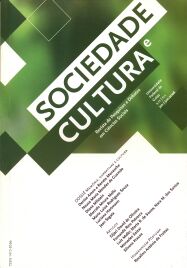Comida como narrativa da memória social
DOI:
https://doi.org/10.5216/sec.v11i1.4467Keywords:
comida judaica, memória social, narrativa, comunidade, identidadeAbstract
As autoras partem da idéia de que o alimento é natural à sobrevivência da espécie humana, mas sua dimensão cultural é posta em relevo pela ação social. Construindo sua reflexão com base em experiências vividas por uma família judia sefardi radicada no Brasil e analisando duas receitas de comidas cotidianas dessa família, as autoras discutem como uma comunidade pode manifestar na comida emoções, sistemas de pertinências, significados, relações sociais e sua identidade coletiva. Desenvolvem o argumento de que se a comida é uma voz que comunica, assim como a fala, ela pode contar histórias. As autoras sugerem que a comida e as práticas da alimentação podem se constituir como narrativa da memória social de uma comunidade.Downloads
Download data is not yet available.
Downloads
Published
2008-08-03
How to Cite
AMON, Denise; MENASCHE, Renata. Comida como narrativa da memória social. Sociedade e Cultura, Goiânia, v. 11, n. 1, 2008. DOI: 10.5216/sec.v11i1.4467. Disponível em: https://revistas.ufg.br/fcs/article/view/4467. Acesso em: 31 dec. 2025.
Issue
Section
Thematic Dossier
License
Authors who publish in this journal agree to the following terms:
- Authors retain the copyright and grant the journal the right of first publication, the work being simultaneously licensed under the Creative Commons Attribution License, which allows the sharing of the work with acknowledgment of authorship and of the initial publication in this journal;
- Authors are authorized to enter into additional contracts separately, for non-exclusive distribution of the version of the work published in this journal (eg, publishing in an institutional repository or as a book chapter), with acknowledgment of authorship and of the initial publication in this journal;
- Authors are allowed and encouraged to post and distribute their work online (eg, in institutional repositories or on their personal page) at any point before or during the editorial process, as this can bring productive change as well as increases the impact and the citation of the published work (see O Efeito do Acesso Livre).



